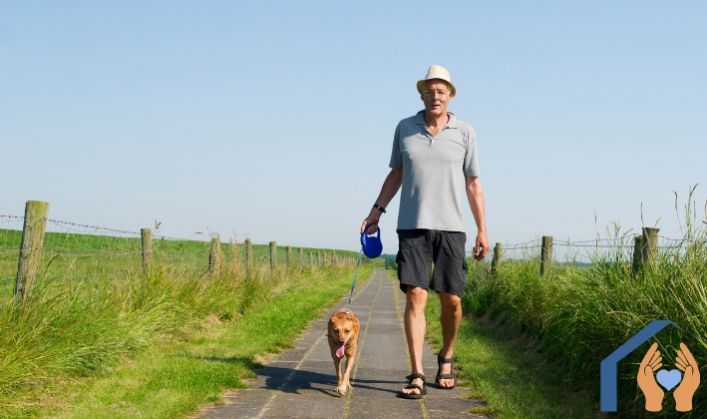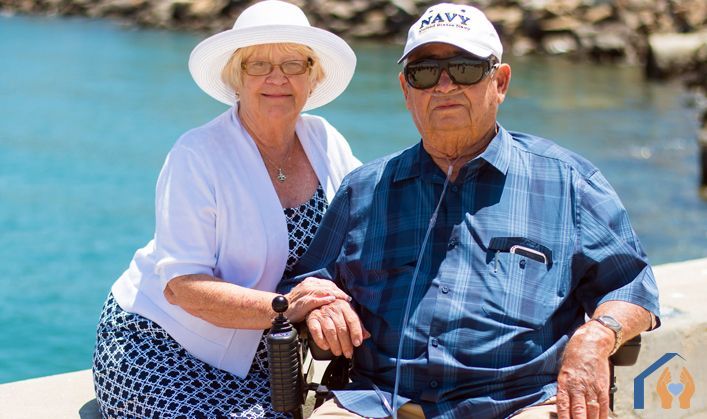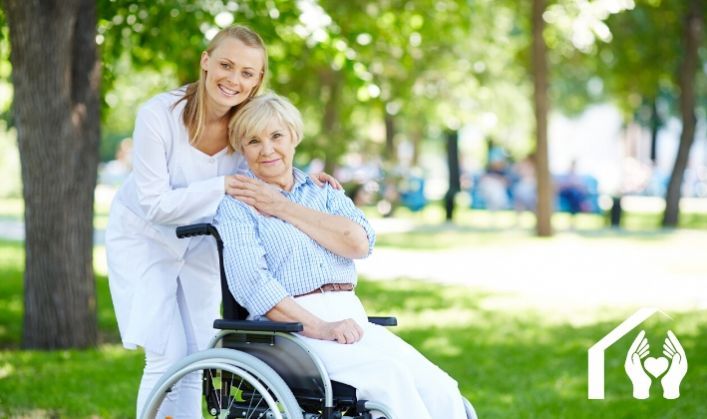-
July 24, 2019
Increasing temperatures and humidity are a serious problem for everyone. For people working outside, the young and people with medical conditions. In particular, older adults over the age of 65 years or older.
According to the Centers for Disease Control (CDC), 40 percent of heat-related deaths were from older adults over the age of 65 years or older. Elders are in danger because their body’s do not adjust to changing temperatures like they did when they were younger.
What’s a heat stroke?
During the hot and humid summer days, is when people need to be more cautious about not overheating their body. According to Mayo Clinic, a heat stroke is your body overheating from being outside too long in hot temperatures. A person’s body can increase to dangerous temperatures like 104 degrees Fahrenheit or higher.
If you or your loved one experiences a heat stroke, get medical attention right away. This condition should not be taken lightly. When left untreated, heatstroke can cause damage to your kidneys, brain and heart. Do not put your life or your loved one’s life in danger.
What are the symptoms of a heat stroke?
Being able to identify the symptoms of a heat stroke can be life saving. That is why the Omaha senior care professionals want to share some symptoms you or a loved one might experience when having a heat stroke.
-
A painful headache
-
Start to feel light-headed or dizzy
-
Lack of sweat
-
Your skin starts to get hot and dry
-
You start to feel nauseated or even start to vomit
-
Fainting.
-
Muscles start to feel weak
How to prevent a heat stroke in seniors?
Check up on them.
When you start to notice the temperatures are rising, go to your elderly loved ones and check on them. Ensure their air conditioning is working correctly. The air ducts are blowing cool air and vents are opened. If you notice that no cool air is coming out, contact a local HVAC specialist.
Do not just check up on your loved one. If you live around other elders, who live alone, go and check on them as well. It could be life-saving for them.
Ask about their health conditions.
Some elders have health conditions that affect the way their body regulates their temperature. If your loved one has is taking any medication, contact their doctor about how the heat will affect them. Ask them if there is something special they need to do or avoid.
Keep them hydrated.
Whether yourself or an in-home caregiver, be sure your elderly loved one is getting enough water. By staying hydrated, the body can stay cool and regulated. Be sure that water is accessible if they have limited mobility.
Give them assistance.
Sometimes all you need is to give your loved one is an extra pair of eyes. Consider getting them an in-home personal caregiver who can come in daily and check up on them. These professionals will make sure they are getting the proper medication, drinking enough water and staying clean.
Do not let the increasing temperatures increase your worry about your elderly loved one. Contact Akkase Home Health Care today to see how our Omaha senior care professionals can assist your loved one from home.
-
Related Articles
-
"June 26, 2019
Summer is not all about slip and slides. It's also a dangerous time for your elderly loved one. That is why the in home senior care Omaha NE professionals want to share with you the dangers, warning signs and how to keep your independent elderly loved one safe during the extreme heat.
-
"March 18, 2020
The four things you need to know when choosing a home care provider.



Comments